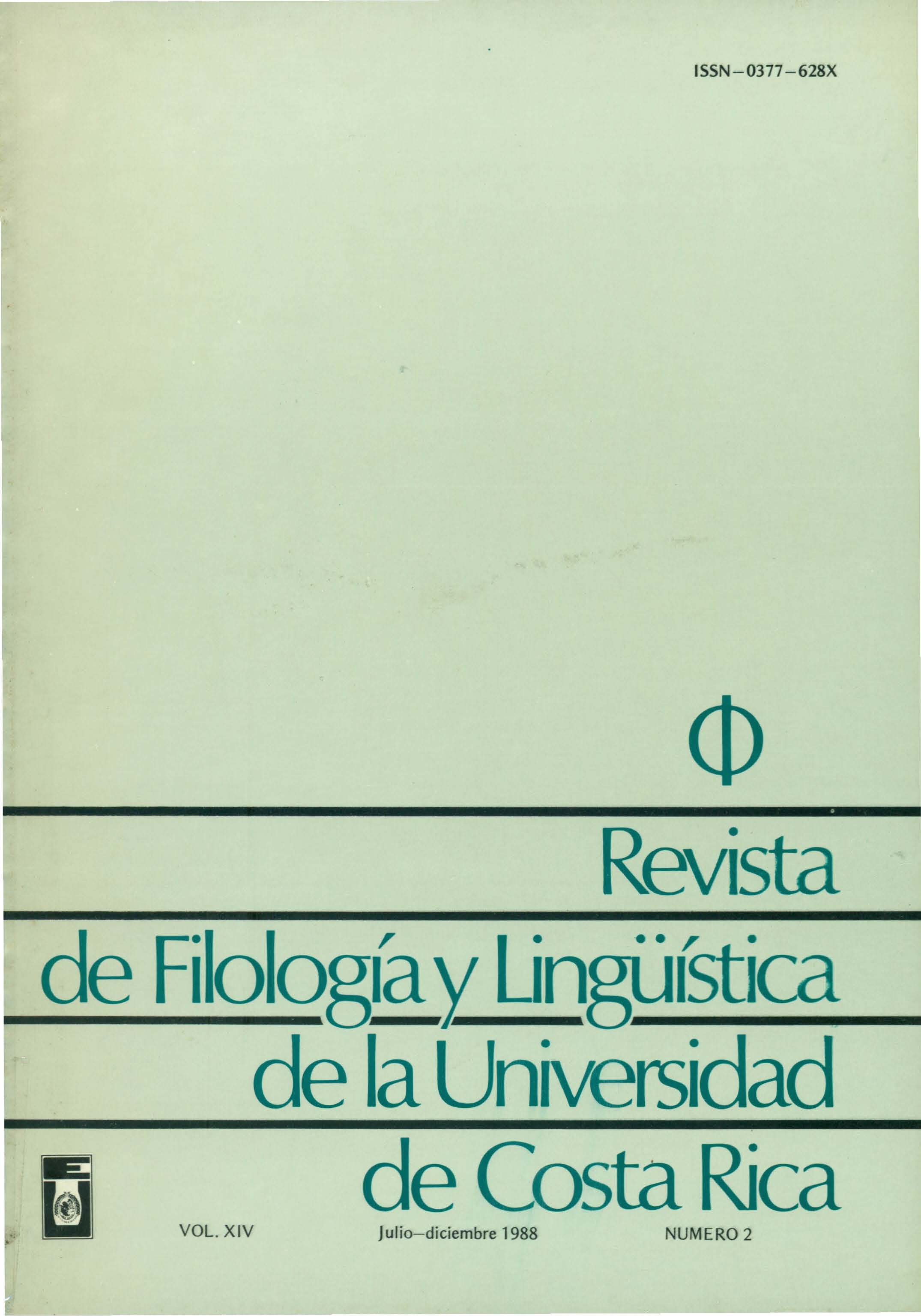Abstract
Este artículo presenta los resultados de un estudio sociolingüístico cuantitativo del fonema [s] en el área metropolitana de San José, capital de Costa Rica. Las variables sociales de género y nivel educativo, y las cuatro variantes de [s] en el área, [s], [z], [h] y [0] fueron considerados. El estudio llevó a la conclusión de que la variación de la / s / no está relacionado con el género, sino que se relaciona con el nivel de educación de los hablantes.
This article presents the results of a quantitative sociolinguistic study of the phoneme [s] in the Metropolitan area of San José, capital of Costa Rica. The social variables of gender and educational level, and the four variants of [s] in the area, [ s ], [ z ], [ h ], and [0 ] were considered. The study led to the conclusion that the variation of /s/ is not related to gender but it is related 10 the education level of the speaker.
Literaturhinweise
Agüero, Arturo (1962). EL EspañoL de América y Costa Rica. San José: Imprenta Atenea.
Alarcos Llorach, Emilio (1965). FonoLogía EspañoLa. Madrid: Editorial Gredos, S.A.
Anshen, Frank (1978). Statistics for Linguists. Rowely, Mass.: Newbury House Publishers, Inc.
Arroyo, Víctor MI. (1971). EL HabLa PopuLar en La Literatura Costarricense. San José: Publicaciones de la Universidad de Costa Rica.
Berk-Seligson, Susan (1978). "The Phonological Correlates of Social Stratification in Costa Rica". Lingua.
Canfield, D. Lincoln (1903). Spanish Pronunciation in the Americas. Chicago: The University of Chicago Press.
Cedergren Henrietta and Davis Sankoff (1974). "Variable Rules: Performance as a Statistical Reflection of Competence". Language, 50.
Chavarría-Aguilar O.L. (1951). "The Phonemes of Costa Rican Spanish". Language, Vol. 27, num. 3.
Guy, Gregory (1975). "Use and application of the Cedergren Sankoff Variable Rule Prograrn".
Analyzing Variation in Language (Ralph Fasold y Roger Shuy, eds.). Washington, D.C.: Georgetown University Press.
Hammond, Robert M. (1980). "Las Realizaciones Fonéticas del Fonema /s/ en el Español Cubano Rápido de Miami". Dialectología Hispanoamericana: Estudios ActuaLes. (Scavnicky, ed.). Washington, D.C.: Georgetown University Press.
Hudson, R.A. (1980). SocioLinguistics. Cambridge: Cambridge University Press.
Labov, William (1966). The SociaL Stratification 01English in New York City, Washington, D.C.: Center for Applied Linguists.
____________(1972a). Language in the Inner City, Philadelphia: The University of Pennsylvania Press.
(1972b). Sociolinguistic Patterns. Philadelphia: The University of Pennsylvania Press.
Menéndez Pidal,Ramón (1925). Manual de Gramática Histórica Española. Madrid: Imprenta Clásica Española.
Quesada, Jorge A. La Variación de /s/ en el Area Metropolitana de San José: Análisis cuantitativo. Tesis de Maestría. Universidad de Costa Rica.
Quesada Pacheco, Miguel A. (1981). Análisis Sociolingüistico del Español de San Gabriel, Monterrey y La Legua de Aserrí. Tesis de Licenciatura. Universidad de Costa Rica.
Resnick, Melvin C. (1975). Phonological Variants and Identification in Latin American Spanish, The Hague: Mouton.
Sankoff, William (1973). "Above and Beyond Phonology in Variable Rules", New Ways Analyzing Variation in English. (Bailey y Shuy, eds.). Washington, D.C.: Georgetown University Press.
Spencer, Eugene F. (1918). Trozos de Historia. Boston: The Athenaeum Press.
Terrell, Tracy (1976). "The Inherent Variability of Word-Final /s/ in Cuban and Puerto Rican Spanish". Teaching English to the Spanish Speaking. (Valdés-Fallis y García-Maya, eds.). Texas: Trinity University Press.
________________y Richard Barrutia (1982). Fonética y Fonología Españolas. U.S.A.: John Wiley and Sons, Inc.
Wilson, Jack L. (1970). A Generative Phonological Study of Costa Rican Spanish. Ph.D. Dissertation. University of Michigan.
Wolfram, Walt (1973). "On What Basis Variable Rules". En Bailey y Shuy.
________________and Ralph Fasold (1974). The Study of Social Dialects in American English. Englewood Cliffs: Prentice Hall.

